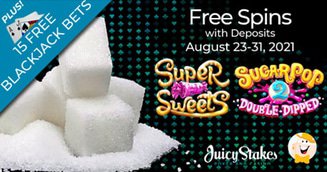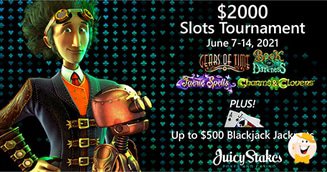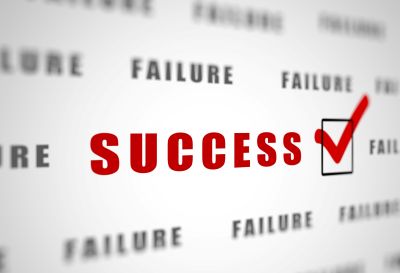
For individuals looking to get into Advantage Play, they are often allured by the prospect of being able to gamble whilst having a positive expectation doing so. In fact, the more positive the Expectation is from a financial standpoint, the more heart-wrenching it can be when the play does not pan out as Expected. In fact, gambling is interesting because a player who has won on a play in an amount exceeding Expectation will occasionally experience no added feeling of elation correctly establishing, “You run better than expected, sometimes,” while the same player may be questioning whether or not he/she should have lost...and, perhaps, whether or not a play was even any good...when things go poorly.
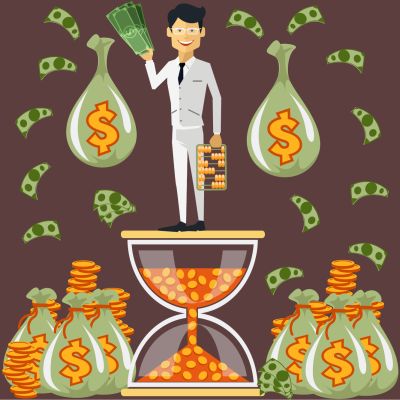
The tendency to place such an importance on short-term results compared to the Expectations is one that persists in all aspects of life, not just gambling. For example, an individual searching for a job, or perhaps looking for a new job, will often come out of an interview under the impression that it went extremely well only to be later surprised by a phone call, or annoyingly and increasingly, E-Mail, informing the candidate that a different individual was selected. It is at this point that the individual will, ‘Replay,’ the interview mentally to determine whether or not he or she made any mistakes or answered any questions in a non-Optimal way despite the fact that the individual exuded confidence both during and immediately after the interview.
There is really no more simple way to put it than, ‘Things don’t work out sometimes,’ and as stated, that is not a fact of life that is related only to gambling, it is a fact of life that is just a fact of all of life. Other aspects of life, such as job interviews, can be much more difficult to quantify (in terms of the probability that one will get a job before/after a particular interview) than profit expectations on a particular Advantage Play. There are any number of variables that are either unknown or cannot be assigned a number. For example, the interviewer may have certain traits that he/she may be looking for in a potential job candidate that would seem to defy the expectations of what someone would normally think an interviewer in that situation should be looking for.
Furthermore, one quantifiable metric that is generally unknown (to an individual interviewee) is how many people may have been interviewed for a particular position. If one can be assumed to generally interview better than 80% of all other equally qualified people, then generally speaking, that person would be the most likely to get the job in a field of two candidates with the second candidate falling anywhere on the 0-100% scale. However, in a field of twenty candidates, it becomes substantially more likely that one of the candidates is better than that person, and with fifty candidates, it is a near certainty.
One interesting question to ask the person would be: Would you have reevaluated the course of the interview and replayed it in your head in the event that you had gotten the job? Would you have any doubt that you performed Optimally in the interview, and even if you had such lingering doubt, would it really be of any concern to you had you gotten the job?
The answer to all of these questions is probably a resounding, ‘No,’ because people often labor under the assertion that results, rather than probabilities, possibilities and, ‘Could have beens,’ are what matter the most. The answer, however, should be, ‘Yes,’ regardless of whether or not the individual in question actually got the job and that is something understood by the vast majority of, ‘Advantage Players.’
The first thing that an Advantage Player should do is prepare. Preparation involves ensuring that the player has the mathematical advantage on the play by gathering as much information as possible about the play in question and making assumptions only when it is absolutely necessary to come to a final determination as to whether or not something is, ‘Worth playing.’ These assumptions generally involve external things that might positively or adversely impact the Expected Profit per Hour, per Play or per whatever basis that you want. This may seem a bit vague, so let me provide an example:
Let’s say that there is a Promotion by which a jackpot is paid a certain Bonus, and for the purposes of this example the amount of the Bonus is irrelevant. Normally, playing whatever the game of choice is, and again, I’m not going to get into a ton of detail because it is not relevant to the point that I’m making, the player can get in 900 plays per hour. Let us assume that the player has determined that, in 900 plays, the Expected Profit is $22.14 which would be about 2.46 cents per play. That’s all fine, however, one condition that is not, ‘Normal,’ is the fact that this is a Jackpot Promotion and it might take the casino staff longer than usual to run around paying out jackpots if there are a bunch of people playing the Promotion. When that happens, less than 900 plays per hour will take place and the player is forced to make an assumption about what the expected number of plays per hour will actually be. Obviously, this assumption may be closer or farther from the case, but as a practical matter, it may be better to underestimate the number of plays one can get per hour rather than overestimate it.

We’re going to assume that after the player re-computed the Expected Plays per Hour that the player ultimately determined that he would only get 650 plays per hour due to the delays. The 2.46 cents per play figure would actually remain the same (and, pragmatically, would be what the player would have figured out first, anyway) so now the play is reduced to being worth $15.99/hour given the assumption on plays per hour. Regardless of the specific game in question, it is extremely unlikely that the player will arrive at a result equal to $15.99/hour, however, but one thing that the player can do (and will be useful to him in future similar Promotions) is to try to estimate (without spending too much time on it...earned players club points are often a good metric) how many plays he/she got in per hour.
Therefore, the best thing that a player can possibly do after the fact is not to see where results went, ‘Right,’ or, ‘Wrong,’ because short-term results are neither Right or Wrong, they just are: The best thing to do is to see how close the player’s assumptions were to correct in order to determine the actual value of the play in question (now that the player has more information) and to also use this information to determine the value of future plays.
In that sense, it is best, in all aspects of life, for a person to always be questioning what he or she did whether it be in the context of a job interview, an Advantage Play or anything else. Furthermore, while results may go better or worse than expected in any particular event, there will almost always be the potential for improvement and that improvement will yield better expected results on future opportunities.
One example that comes to mind, and hopefully there are at least a few hockey fans out there, is the most recent game (as of the time of this writing) in the Stanley Cup Finals which was Game 5
between the Pittsburgh Penguins and the San Jose Sharks. The Sharks won that game by a score of 4-2 (the fourth goal was an empty netter in the closing moments of the game) so we’re left to look at the stats and determine whether or not that win, ‘Should,’ have happened.
First of all, in the Sports Betting circles, the Penguins generally had a Line of -1.5, which means that they were, ‘Expected,’ to win the game by 1.5 goals. Obviously, there is no way to score half of a goal in the sport of hockey, so that immediately tells you that Expectations do not always conform to reality, and in the case of this particular game, expectations, literally, could not conform exactly to reality as there is no way to win a game by 1.5 goals.
If you were to look at the Box Score:
Even the most Basic Stats tell the story of a game that the Pittsburgh Penguins, ‘Should,’ have won. The most glaring stat is the fact that they had 46 shots on goal compared to 22 for the Sharks. Even for those that do not know much about hockey, the immediate (and correct) conclusion should be that a team that takes more than twice as many shots as their opponents generally wins the game. Another stat that jumps out, though not necessarily as obviously relevant, is that the Penguins went 1-for-3 on the Power Play compared to 0-for-2 for the Sharks.

For those who watched the game, it gets even more lopsided with respect to what actually happened compared to what could have been expected to happen based on the Stats. The Pittsburgh Penguins were absolutely dominant in the second and third period. They had more scoring chances, more quality scoring chances, and honestly, quite a few opportunities that would have resulted in a team running up 6+ goals in many other games.
Of course, young Sharks goaltender (age: 26) Martin Jones had something to say about that, and that was something that he repeated throughout this entire game in which he turned away 44 shots and did not allow a goal in either the second or third periods. Simply put, the guy played absolutely out of his mind stopping in excess of 95% of the shots that he faced (his Career Save Percentage is 91.9%, expressed as .919 in Hockey parlance, as of the time of this writing) and he faced more shots than some goaltenders would face in two games combined!
Based just on Jones’ performance compared to his overall career, and with all other things being equal, he is expected to stop 42.274 of the 46 shots that he faced resulting in a score that rounds up to four goals for the Penguins. Again, if all other things were equal, the Penguins are even more likely to have won the game as the net would not have been empty as of the time that the Sharks scored their final goal.
Even more important than the shots he faced, however, are the shots that Jones didn’t face. Throughout the course of this game, there were a good many shots by the Penguins that Jones stopped clean that would not normally be stopped clean (by anyone) which would have resulted in additional rebound opportunities (i.e. more shots) for the Penguins to take at Jones during the game.
In other words, in a game in which all of the other stats available point to the Expectation that the Penguins should have won decisively, one man’s incredible performance was enough (and more) to tip the scales over to the Sharks.
Matt Jones was a Royal Flush on a Video Poker game that night! Hell, he might even have been two Royal Flushes!
Video Poker is another example of how short-term results do not always conform to long-term expectations. In fact, long-term results do not always conform to long-term expectations depending on how one is defining, ‘Long-term.’ An individual, for example, might believe that he or she plays an, ‘Optimal,’ game of some high-returning Video Poker variant and is satisfied in this belief because he/she has experienced results (profits) that he/she considers long-term profitable results. While this probably means that the individual in question is playing well (again, depending on what the definition of long-term being used is) that does not mean that the person is playing Optimally.
There are any number of plausible scenarios through which an individual might incorrectly conclude that they are playing an Optimal Video Poker game. In my opinion, perhaps the most likely, is that the player was never playing Optimally to begin with. For instance, the player may have been using a Video Poker trainer, such as one of the ones available on Wizardofodds.com and determined, after perhaps one or two thousand hands without an error, that his/her game is Optimal. In those hands, however, it is conceivable that the player simply did not experience a hand in which the player would, ‘Naturally,’ make the incorrect play.
As a result, the player might still be able to play profitably overall, but conceivably might always make the same error when presented with a particular hand, or even more than one hand. Furthermore, it is also possible that the player has since forgotten some of what he/she did learn from the strategy trainer and now makes mistakes that he/she did not even make when he/she first started playing Video Poker for money.
However, the results are all in line (or better than) expectations, so many people would not feel the need to go back to the strategy trainer and reevaluate to ensure that they are playing 100% Optimally, or as close to that as the player actually wishes to be playing. Even in a long-term type scenario (depending on how it is defined) one or more Royals might make all of the difference.
This is also true with the losing player who might simply be one (or a few) Royals under Expectations, but is otherwise actually playing Optimal Video Poker for the Variant in question. One difference between the two individuals, however, is that the second individual may be more likely to question his/her game’s solidity and might even be more likely to go back to the Video Poker Trainer to ensure that he or she is playing Optimally. After doing so, the player might even find that, yes, he/she knows all of the exceptions and plays a perfect game.
While the actual results are not as they should be, player two in this scenario plays at, and will continue to play at, a better Expected Return than that enjoyed by Player One who continues to make many of the same mistakes but is not terribly concerned because the long-term results are actually better than they should be.
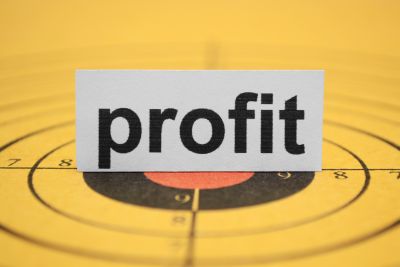
If these two candidates were interviewing for a Video Poker team, should such traditional interviews actually take place, Player One might end up with the job even though Player Two (all other things equal) would be the better candidate.
The point is that the fundamental process of being an Advantage Player can be broken down into a few simple steps that I will detail below. Depending on the play in question, each of these steps may be more difficult, less difficult and sometimes, maybe even unnecessary. However, it is best to go through this checklist in order to determine that you are getting the Optimal Value (or, at a minimum, value that you find satisfactory) on all of the plays upon which you will embark:
1. Identify
The first thing that an Advantage Player must do is identify a potential opportunity that has a Positive Expected Value. As the player goes through the checklist, the player may ultimately find that a particular play does not yield a positive Expected Value, however, learning to figure out whether or not one does often has a value in and of itself as those concepts can be used on future plays.
2. Make Assumptions, As Long As They Are Reasonable
Unfortunately, not everything about every particular Advantage Play can be known, so sometimes assumptions have to be made in order to determine whether or not a play is going to have value. In some cases, a player might even end up playing something with a negative Expected Value due to the fact that some of a player’s assumptions were wrong, therefore, while I would not necessarily immediately assume a, ‘Worst-Case Scenario,’ you definitely want your assumptions to be as reasonable as possible. Personally, I’d much rather underestimate the value of something than overestimate it, but that’s just me.
3. Analyze
Using what can be mathematically known about a particular play combined with the assumptions you have made, you must now mathematically analyze a play to determine whether or not you have an Advantage at all, and if so, how much the play is worth. At my playing level, for instance, there are some opportunities that I would be happy to play that would not have a great enough dollars and cents value for other people.
4. Play and Observe
This is the part where you actually embark on the play, but while you are doing so, it is essential to be determining whether or not reality is conforming to your assumptions, at least, loosely. As far as the, ‘Hard figures,’ go based on what can be known, those should not be wrong, so your assumptions should be the only Variable that needs to be challenged.
5. Analyze and Weigh Your Results
This is where you take a look at your Actual results as opposed to your Expected Results and, at this point, you are actually going to use any assumptions that were proven to be inaccurate to come up with another set of Expected Results to see how your Expectations (before the play) compare to your Expectations after the play is finished.
This can actually be particularly useful for Video Poker players who are embarking on an Advantage Play with respect to checking a Strategy Guide for certain plays. On a play where it is important (at positive value) to get in as many plays per hour as one can during the time of the Promotion, is a player actually losing money by playing perfectly as opposed to playing as many hands as possible at a level that is, ‘Good enough?’ By weighing results assuming you get x amount of hands in but cost yourself $x.xx per hour in errors compared to getting y amount of hands in and costing yourself $0.00 in errors, which of these two results in the better overall Expected Value?
6. Reevaluate Your Assumptions
Was the actual course of play so different from your assumptions of the Variables associated therewith so far off as to be considered fundamentally, ‘Wrong?’ If so, then your assumptions could definitely stand to be reevaluated. Obviously, this is not the case for something in which you assumed you would make 800 plays an hour and you only made 790, but what if you assumed you would make 800 an hour and you only made 700? 1/8th of the Expected Profits you thought you would enjoy before the play simply do not exist because you severely overestimated the number of plays per hour you thought you would get in.
7. Win or Lose-Question Yourself
It is important to question yourself whether you win or lose on a particular play. You definitely want to know if your results did not conform to expectations because you got either, ‘Lucky,’ or, ‘Unlucky,’ or was something that you were doing fundamentally wrong? Furthermore, with many different types of Promotions, including those at Online Casinos, there are many different ways they can be played if the goal is to merely make a profit. However, your goal (within the means of your ability and bankroll) should not be to merely make a profit, it should be do make as much of a profit as possible.
Statistics would back me up in saying that your next job is not likely to be your last (depending on age, of course) which means that, even though you did well enough in this job interview to get the position, you’re going to have to do well enough again at some time in the future. For this reason, even if you get the job, you should go back and replay that interview in your head picking out the things that you did well just as much as you should pick out the things that could have used some improvement. Only then will you succeed in getting closer to being capable of an, ‘Optimal Interview,’ from the perspective of an employer.
In all things that we do we should strive to become better because there is only one circumstances in which a person cannot become better, and that is when he or she is already doing something perfectly. As we all know, very few people ever do anything absolutely perfectly and Advantage Play is no exception...there’s almost always room to get better.







